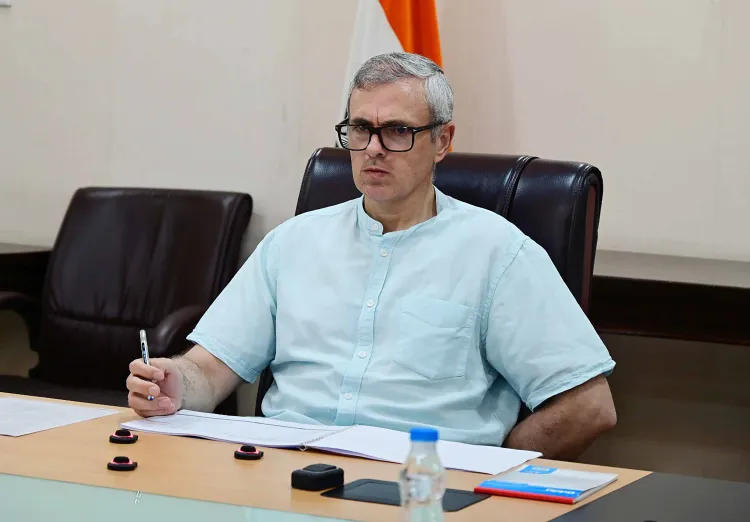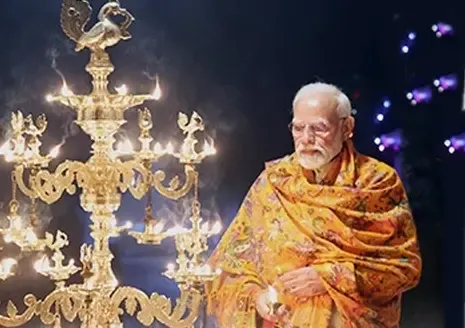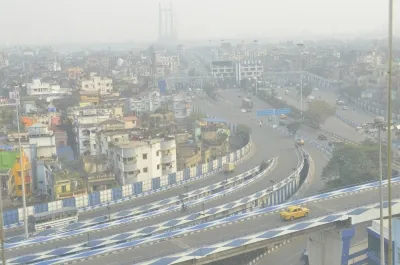Will the J&K Cabinet Finalize the Report on Government Job Reservations Today?

Synopsis
Key Takeaways
- J&K cabinet meeting to discuss CSC report on job reservations.
- 70% of job reservations currently allocated to various categories.
- Importance of balancing reserved and open merit candidates.
- Cabinet's decision may lead to significant changes in employment opportunities.
- Questions about Parliamentary approval for recommendations.
Srinagar, June 18 (NationPress) The Jammu and Kashmir cabinet, led by Chief Minister Omar Abdullah, is convening this evening to deliberate on the report from the cabinet sub-committee (CSC) regarding reservations in government jobs.
The CSC completed its report on June 10, which will be presented to the cabinet for a decision on this contentious matter that bears significant constitutional and legal ramifications.
The cabinet will evaluate the final report from June 10, considering how to address this sensitive issue.
Among the five cabinet ministers in J&K, three, excluding the CM, are members of the CSC.
There has been significant unrest amongst open merit candidates, as reservations across various categories in the Union Territory have surged to nearly 70 percent, leaving a mere 30 percent of positions available for open merit applicants.
The cabinet's decision will be crucial regarding the implementation of the CSC report and the methods to enact its recommendations.
The ruling National Conference (NC) had previously committed to revisiting the reservation policy in its election manifesto, aiming to ensure a more merit-based distribution of opportunities for open merit candidates.
Established on December 10, 2024, the CSC was tasked with submitting its report within six months.
For Omar Abdullah's government, making a final decision on reservations poses a significant challenge; reducing reservations in any category is a delicate undertaking, yet it is essential to provide relief to open merit candidates.
According to existing regulations, 20 percent is reserved for Scheduled Tribes (STs), inclusive of 10 percent each for Gujjars and Bakerwals as well as Pahari Ethnic Tribes, 10 percent for Residents of Backward Areas (RBAs), 10 percent for Economically Weaker Sections, 8 percent for Other Backward Classes, 8 percent for Scheduled Castes (SCs), and 4 percent for residents of areas near the Line of Actual Control (ALC) or International Border (IB).
Additionally, there is a 10 percent horizontal reservation, with 6 percent allocated to ex-servicemen and 4 percent to Persons with Disabilities (PwDs).
Moreover, candidates from reserved categories selected under the general category may also choose to apply for positions in the open category.
Until a year ago, there was no reservation for OBCs, and only 4 percent was offered under the Other Social Castes (OSCs) category. The BJP-led Union government addressed the long-standing demand for OBC reservation by enacting a law in Parliament, which granted them 8 percent reservation.
Furthermore, the reservation under the RBA category was previously 20 percent but has now been reduced to 10 percent. There have been claims that influential individuals manipulated the inclusion of their villages in the RBA category to gain reservation benefits for their relatives.
Reservations in Jammu and Kashmir were instituted following the passage of the Reorganisation Act 2019 by Parliament. Even if the CSC's recommendations are accepted by the cabinet and subsequently approved by the UT’s Legislative Assembly, a lingering question remains: can they take effect without the approval of Parliament?
The Jammu and Kashmir Reorganisation Act, 2019 encompasses provisions for job and admission reservations within the Union Territories of Jammu and Kashmir and Ladakh. These provisions extend the existing reservation policies applicable to Scheduled Castes, Scheduled Tribes, and other socially and educationally disadvantaged classes to J&K.









